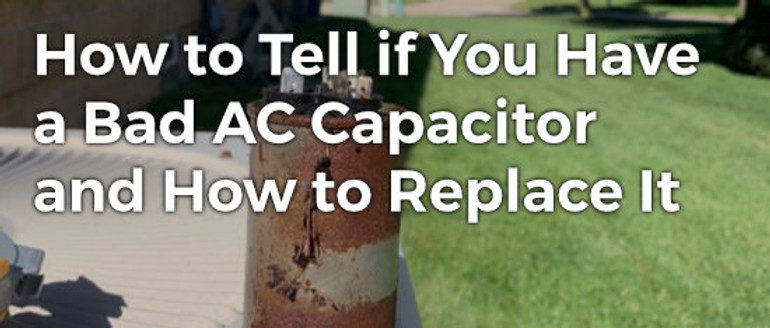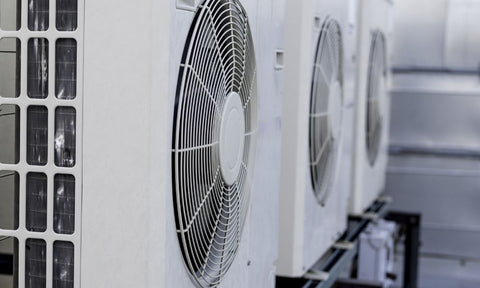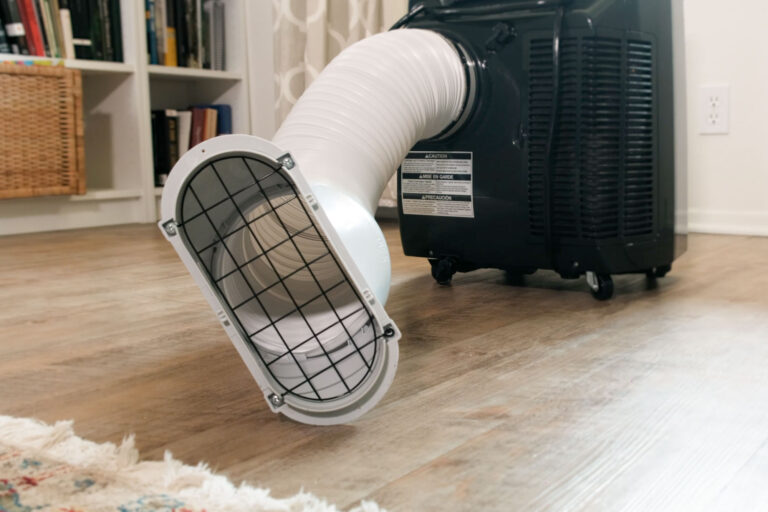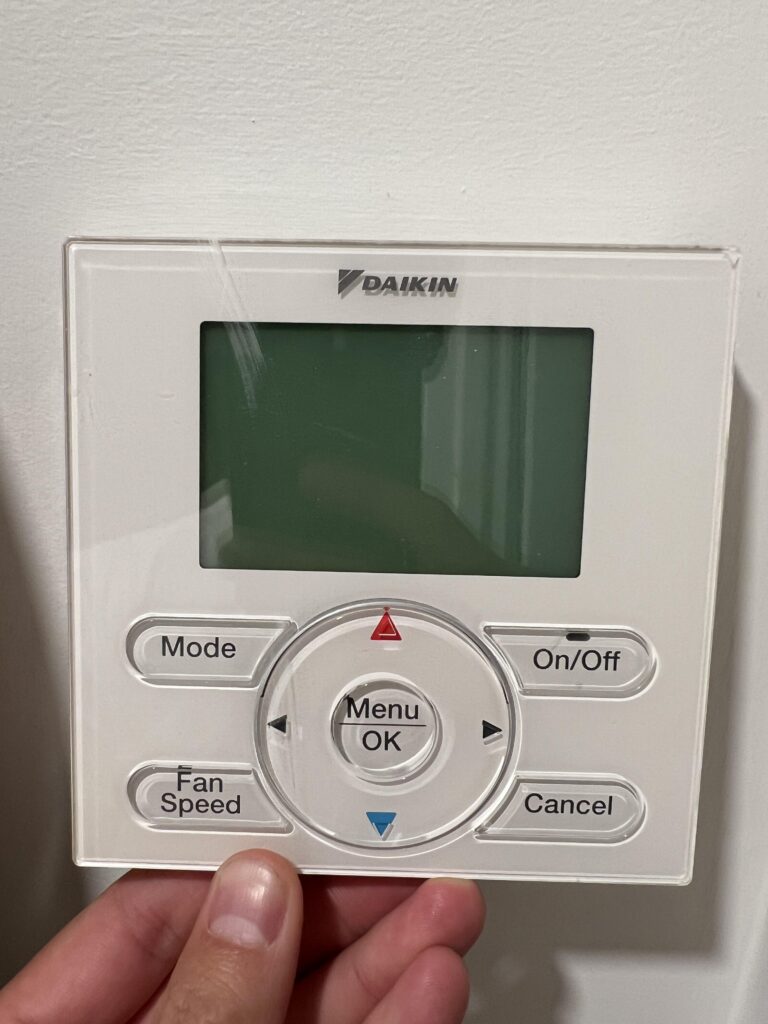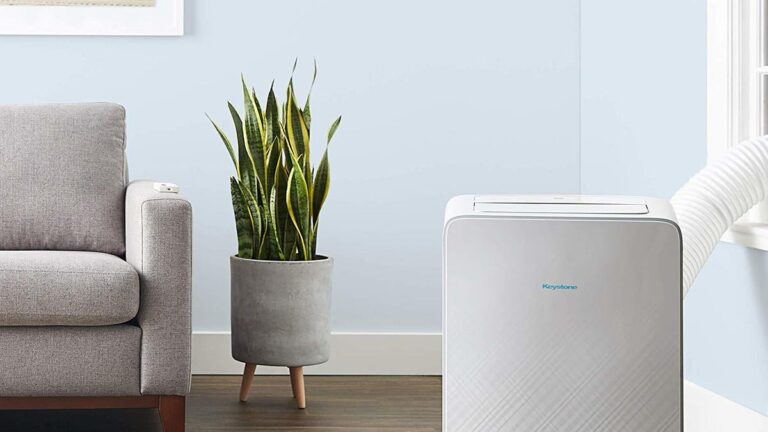What Size Capacitor Do I Need for Air Conditioner: A Comprehensive Guide
To determine the size of capacitor you need for your air conditioner, consider the capacitance value, voltage rating, ripple current rating, and temperature variation. The physical size of a capacitor depends on the capacitance value, meaning that as the capacitance increases, the size of the capacitor will also be larger.
It is important to choose the right size capacitor, as using one that is either too large or too small can have negative effects on the performance and longevity of your air conditioner.
Understanding Capacitors For Air Conditioners
When selecting a capacitor for your air conditioner, it’s important to consider factors such as capacitance, voltage rating, ripple current rating, and temperature. The physical size of the capacitor will vary depending on its capacitance value, with larger capacitance requiring a larger size.
It is crucial to choose the right size capacitor for optimal performance.
Capacitors play a crucial role in the functioning of air conditioners. They store electrical energy and release it when needed to start the compressor and fan motors. Without capacitors, air conditioners would struggle to start and run efficiently. In this section, we will explore the different types of capacitors used in air conditioners and how they function.
The Role Of Capacitors In Air Conditioners
- Start capacitors: These capacitors provide the initial jolt of energy needed to start the compressor motor. They have a higher capacitance value and are only active during the starting phase.
- Run capacitors: Once the compressor motor is running, run capacitors keep it running smoothly. They have a lower capacitance value, and their role is to maintain a consistent flow of electrical energy to the motor.
- Dual run capacitors: Some air conditioning units use dual run capacitors, which combine the functions of start and run capacitors into one component. These capacitors are more economical and space-efficient.
Different Types Of Capacitors Used In Air Conditioners
- Electrolytic capacitors: Typically used as start capacitors, electrolytic capacitors offer high capacitance values, making them suitable for delivering the initial burst of energy required to start the compressor motor.
- Motor-run capacitors: As the name suggests, these capacitors are primarily used for the continuous running of the motor. They have a lower capacitance value and can handle the sustained power requirements of the compressor motor.
- Dual capacitors: Combining the functions of start and run capacitors, dual capacitors are commonly used in air conditioners. They offer convenience and efficiency by providing both starting and running power in a single component.
How Capacitors Function In Air Conditioning Units
- Starting process: When you turn on your air conditioner, the start capacitor delivers a jolt of energy to the compressor motor, enabling it to start. It provides the extra boost needed to overcome the inertia and get the motor up and running.
- Running process: Once the compressor motor is running, the run capacitor comes into play. It provides a continuous flow of electrical energy to keep the motor running smoothly. Without the run capacitor, the motor may struggle or stall.
- Overload protection: Capacitors also act as a safety mechanism by protecting the compressor motor from overload. If the motor draws too much current, the capacitor detects this and shuts off the power, preventing damage to the motor.
Remember, it is important to replace capacitors with the correct size and type as specified by the manufacturer. If you are unsure about the size of the capacitor you need for your air conditioner, consult a professional HVAC technician for assistance.
Factors To Consider When Determining Capacitor Size
When determining the capacitor size for an air conditioner, it is important to consider factors such as capacitance, voltage rating, ripple current rating, and temperature. Capacitance value affects the physical size of the capacitor, with larger capacitance requiring a larger size.
It is essential to select the right size to ensure optimal performance and avoid any issues.
When it comes to determining the size of the capacitor for your air conditioner, there are several factors that you need to consider. These factors include the voltage rating of the capacitor, the capacitance value and tolerance, and frequency and temperature considerations.
Let’s take a closer look at each of these factors:
Voltage Rating Of The Capacitor:
- The voltage rating of the capacitor is an important consideration when determining its size. It refers to the maximum voltage that the capacitor can safely handle. It is crucial to choose a capacitor with a voltage rating that matches or exceeds the voltage of your air conditioner unit.
Capacitance Value And Tolerance:
- The capacitance value of the capacitor determines its ability to store and release electrical energy. It is measured in microfarads (µF). To determine the capacitance value needed for your air conditioner, you can refer to the manufacturer’s specifications or consult a professional. It is also important to consider the tolerance of the capacitor, which indicates the permissible variation in its capacitance value.
Frequency And Temperature Considerations:
- The frequency of the electrical signals in your air conditioner system should be taken into account when determining the capacitor size. It is typically mentioned in hertz (Hz). Additionally, the temperature within the air conditioner unit can affect the performance of the capacitor. It is important to choose a capacitor that can withstand the temperatures typically found in your air conditioner system.
By considering these factors, you can ensure that you select the right size capacitor for your air conditioner unit. Remember to consult the manufacturer’s specifications or seek professional assistance for accurate information.
Step-By-Step Guide To Determine Capacitor Size For Your Air Conditioner
Discover the step-by-step guide to determine the perfect capacitor size for your air conditioner. Ensure optimal performance and efficiency by choosing the right size capacitor for your AC unit. Avoid common overused phrases and follow these guidelines to find the ideal capacitor size.
Identify the Manufacturer’s Specifications:
- Check the air conditioner unit for any manufacturer specifications or labels that indicate the capacitor size required.
- Look for a sticker or plate on the unit itself with information about the capacitor’s voltage and microfarad (µF) rating.
Checking the Capacitor Ratings on the Unit:
- If the capacitor ratings are visibly printed on the capacitor, take note of the microfarad (µF) rating. This is the most important value needed to determine the proper capacitor size.
- Identify the voltage rating of the capacitor, which is usually printed as VAC (volts alternating current) or WV (working volts).
Using Online Resources and Capacitor Calculators:
- Utilize online resources and capacitor calculators that can help determine the appropriate capacitor size for your air conditioner based on its specifications.
- Input the required details such as the voltage rating and microfarad (µF) rating of your unit into the capacitor calculator tool.
- The calculator will provide you with the recommended capacitor size for your air conditioner.
Consulting with HVAC Professionals:
- When in doubt or if you are unable to find the necessary information, it’s advisable to consult with HVAC professionals.
- HVAC technicians have the expertise and experience to accurately determine the capacitor size needed for your air conditioner.
- They can also assist with any other technical questions or concerns you may have.
Remember, it is crucial to ensure the correct capacitor size for your air conditioner to avoid potential damage or inefficient cooling. Following these steps will help you determine the appropriate capacitor size and keep your air conditioner running smoothly.
Common Capacitor Problems And Troubleshooting
Knowing the right size capacitor for your air conditioner is crucial to avoid common problems. Take into account the capacitance, voltage rating, ripple current rating, and temperature when selecting a capacitor, as the physical size depends on the capacitance value.
Ensure you do not oversize the capacitor, as it can cause issues.
Signs Of A Faulty Capacitor In An Air Conditioner:
- Frequent tripping of circuit breaker: If your air conditioner keeps tripping the circuit breaker, it could indicate a faulty capacitor. The capacitor is responsible for supplying the necessary electrical energy to start and run the compressor and fan motor. A faulty capacitor can cause the compressor to draw excessive current, leading to breaker trips.
- Failure to start: If your air conditioner fails to start or takes a long time to start after turning it on, a faulty capacitor could be the culprit. The capacitor provides the extra electrical boost needed to start the compressor and fan motor. If it is not functioning correctly, the motor may struggle to start or not start at all.
- Weak airflow: A faulty capacitor can also impact the airflow of your air conditioner. If the capacitor is unable to provide enough electrical power to the fan motor, the airflow may be weakened. This can result in reduced cooling performance and uneven distribution of cool air throughout the room.
Diy Capacitor Testing Methods:
- Visual inspection: Start by inspecting the capacitor for any visible signs of damage, such as bulging or leaking. If you notice any of these signs, it is likely that the capacitor is faulty and needs to be replaced.
- Multimeter testing: You can use a multimeter to test the capacitance and voltage of the capacitor. Make sure to discharge the capacitor before testing, as it may still hold an electrical charge. Compare the measured values with the specifications provided by the manufacturer to determine if the capacitor is within the acceptable range.
Replacing A Capacitor: Tips And Precautions:
- Safety first: Before replacing a capacitor, ensure that your air conditioner is completely disconnected from the power source. This will prevent any accidental electrical shocks or injuries during the replacement process.
- Capacitor specifications: When purchasing a new capacitor, make sure to match the specifications of the old capacitor. This includes the capacitance rating (usually given in microfarads, uF) and the voltage rating. Using an incorrect capacitor can cause damage to the compressor and fan motor.
- Proper installation: Install the new capacitor in the same orientation as the old one. Ensure all wires are securely connected and verify that the connections are correct. It may be helpful to take pictures or label the wires before disconnecting them for easier reinstallation.
Remember, if you’re unsure or uncomfortable with testing or replacing a capacitor on your own, it’s always best to consult a professional HVAC technician. They have the knowledge and experience to safely and accurately diagnose and resolve any issues with your air conditioner’s capacitor.
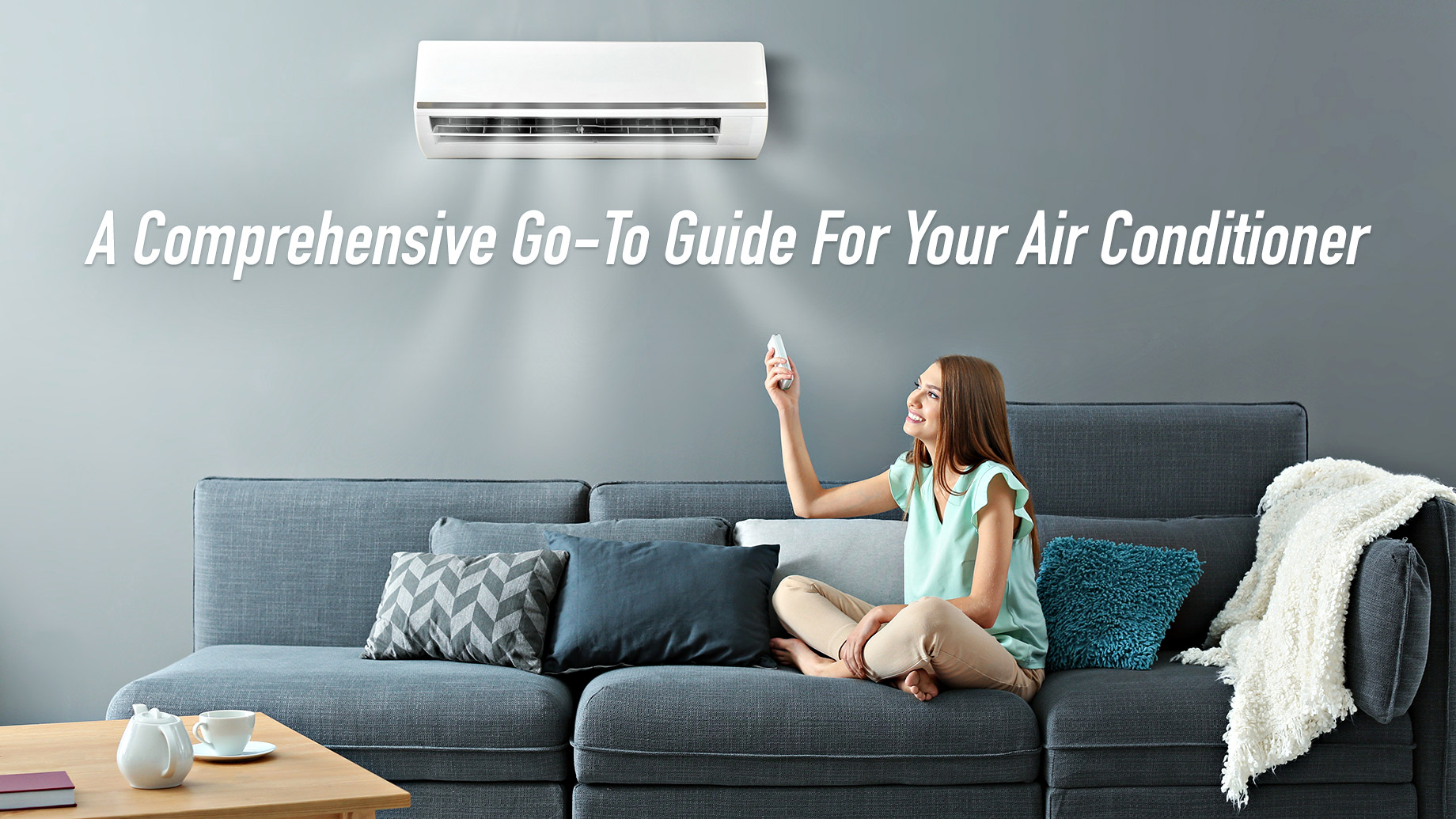
Credit: www.thepinnaclelist.com
Frequently Asked Questions Of What Size Capacitor Do I Need For Air Conditioner
How Do I Know What Size Capacitor I Need For My Ac?
To determine the size of capacitor needed for your AC, consider the capacitance, voltage rating, ripple current rating, and temperature. The physical size of the capacitor depends on its capacitance value, which increases as the size of the capacitor increases.
Be cautious not to oversize the capacitor as it can cause energy consumption to rise and shorten the lifespan of the motor due to overheating.
How Do I Know What Size Capacitor To Use?
To determine the size of capacitor to use, consider the capacitance, voltage rating, ripple current rating, and temperature. The physical size of the capacitor is dependent on the capacitance value, with larger capacitance values resulting in larger sizes. Avoid oversizing the capacitor as it can lead to increased energy consumption and shorten the lifespan of the motor.
Take these factors into account when selecting the appropriate capacitor size.
Is It Ok To Oversize Ac Capacitor?
It is not recommended to oversize an AC capacitor as it can cause energy consumption to rise and shorten the life of the motor due to overheating.
Can I Use A 7.5 Capacitor In Place Of A 5?
No, you should not use a 7. 5 capacitor in place of a 5. The size of the capacitor should match the specifications of the device to ensure proper functioning.
Conclusion
When determining the size of capacitor needed for your air conditioner, it is important to consider several factors. These include the capacitance, voltage rating, ripple current rating, and temperature. The physical size of the capacitor will also depend on the capacitance value, with larger capacitances resulting in bigger sizes.
However, it is crucial not to oversize the capacitor, as this can increase energy consumption and potentially shorten the lifespan of the motor due to overheating. To find the right capacitor size, it is recommended to consult a professional or refer to the manufacturer’s specifications.
They will have the expertise to ensure that your air conditioner operates efficiently and effectively. Selecting the correct capacitor size is essential for the optimal performance and longevity of your air conditioner. By considering the various factors mentioned above and seeking expert guidance, you can ensure that your system functions properly and provides you with cool and comfortable indoor air.

